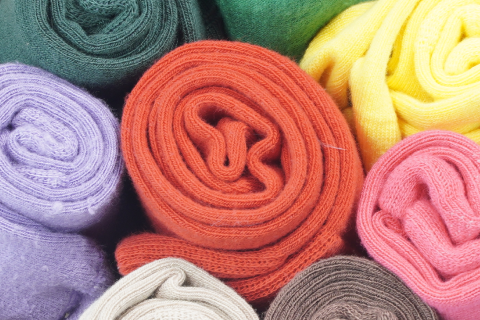When it comes to keeping your feet healthy and comfortable, choosing between cotton and synthetic socks is more than just picking a fabric. This choice affects how comfy you feel day-to-day, as well as your feet's overall health and cleanliness. Since healthy feet are key to a happy life, it's important to know the differences between these popular sock materials. In this guide, we'll dive into the benefits and downsides of both cotton and synthetic socks. We aim to give you the insights you need to pick the right socks for your lifestyle, foot care routine, and personal taste. We'll look at what each type of fabric offers, how well they manage moisture, and which activities they're best for. Our goal? To help you keep your feet in tip-top shape, comfy all day long, and clean.
The Importance of Choosing the Right Socks
Comfort and Foot Health
Selecting the appropriate socks is an essential aspect of foot care that significantly affects both comfort and foot health. This choice goes beyond mere preference, acting as a preventive measure against a range of common foot issues. The right pair of socks can serve as a first line of defense against foot pain, blisters, and other discomforts that can arise from daily wear and tear. Furthermore, the material of your socks directly influences your foot hygiene, with certain fabrics offering better moisture control to keep your feet dry and reduce the risk of fungal infections. Additionally, the compatibility of your socks with your footwear can enhance comfort levels, provide adequate cushioning, and support your foot's natural shape, all of which contribute to overall foot happiness.
Cotton Socks: The Natural Choice
Benefits of Cotton for Your Feet
Cotton socks have long been valued for their inherent breathability and natural softness, attributes that make them an exceptionally comfortable choice for day-to-day use. Their gentle touch on the skin is particularly beneficial for individuals with sensitive skin or those prone to allergies, as cotton's natural fibers are less likely to cause irritation or allergic reactions compared to synthetic materials. Moreover, cotton's air-permeable nature allows for effective air circulation, keeping the feet cool and reducing the likelihood of overheating during warmer days or during prolonged periods of wear.
Drawbacks to Consider
While cotton socks offer numerous advantages, their high moisture absorbency can sometimes act as a drawback, particularly in situations where moisture management is crucial. Cotton's propensity to retain water can lead to a sensation of dampness, especially during intense physical activity or in humid conditions. This retained moisture can create an environment conducive to the growth of bacteria and fungi, potentially leading to foot hygiene issues like athlete's foot. Therefore, while cotton socks are an excellent choice for their comfort and natural benefits, it's important to consider these potential drawbacks. Regularly changing your socks and ensuring your feet are dry before wearing them can help maintain hygiene and comfort.

Synthetic Socks: The High-Performance Alternative
Advantages of Synthetic Fibers
Synthetic materials, such as polyester and nylon, are engineered for moisture-wicking, drawing sweat away from the skin to keep feet dry. This feature is essential for athletes or anyone prone to excessive foot perspiration, reducing the risk of fungal infections.
Potential Concerns
On the downside, some synthetic fibers may not offer the same level of breathability as natural materials, which can be a drawback for those with sensitive feet or specific foot conditions.
Making the Right Choice for Your Feet
Considering Your Lifestyle and Needs
The decision between cotton and synthetic socks should be based on your daily activities, foot care routine, and any specific foot health concerns. For instance, those engaging in regular physical activity might lean towards synthetic socks for their moisture-wicking properties, while someone seeking day-to-day comfort might prefer the softness of cotton.
Expert Tips for Healthy Feet
Regardless of your choice, maintaining foot hygiene with practices such as washing your feet daily, wearing shoes that fit well, and avoiding high heels for extended periods can contribute significantly to overall foot health.
Featured Hugh Ugoli Socks for Optimal Foot Health
- Men's Diabetic Ankle Thin Cotton Socks: Ideal for those seeking the natural comfort of cotton with enhanced breathability.
- Women's Diabetic Thin Cotton Crew Socks: Perfect for active individuals, offering superior moisture management and foot support.
For more insights into effective foot care and choosing the right socks for every occasion, check out our detailed guide, “Comfort and Care: Choosing the Right Socks for Senior Feet.”
















